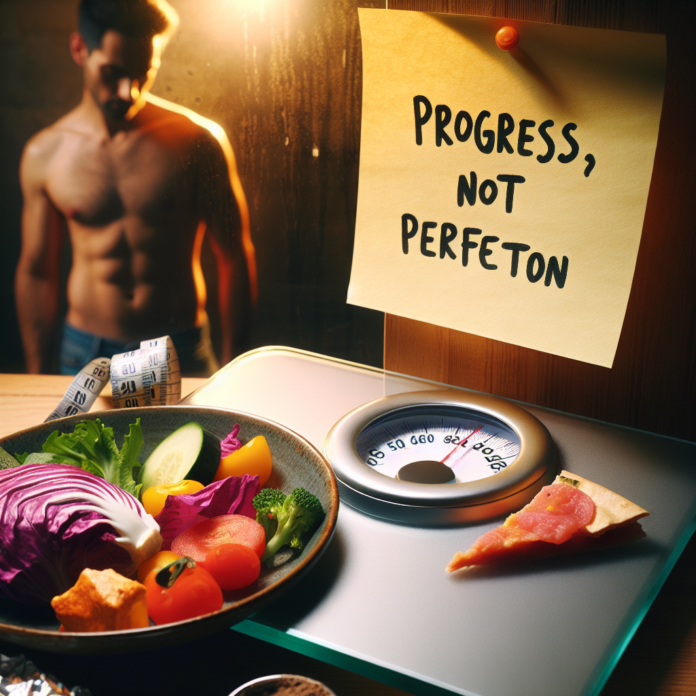body {
font-family: Arial, sans-serif;
line-height: 1.6;
margin: 20px;
}
h2 {
color: #333;
margin-top: 20px;
}
p {
margin-bottom: 10px;
}
.highlight {
font-weight: bold;
}
Weight loss is a journey filled with challenges, contradictions, and a multitude of advice that often skirts around the most daunting truth: the number on the scale matters. In a world where social media influencers preach everything but the importance of the scale, it’s easy to get lost in a sea of “non-scale victories” and diet tips that emphasize movement, meal timing, and food types. However, as individuals who have successfully shed significant weight and maintained it for nearly a decade, we understand that avoiding the scale is a common pitfall. It’s time to address this head-on, with honesty and compassion. In this blog, we delve into the often-controversial belief that focusing on the scale is crucial for achieving and maintaining weight loss, sharing personal insights and experiences that defy the popular narratives.
The Reluctance to Step on the Scale
In an era where the importance of the scale is often downplayed, Kyle and I believe it is essential to bring this conversation back to the forefront. Having each lost 130 pounds and kept it off for over nine years, we have firsthand experience of the significant role the scale plays in weight loss. While non-scale victories and practices like focusing on healthy eating, movement, and meal timing are important, they should not be used to distract from the core necessity: watching the scale go down.
One of the biggest reasons people avoid weighing themselves is the deep emotional attachment and fear of the number they will see. This reluctance is understandable. Society often stigmatizes weight, and the scale can feel like a relentless judge. However, avoiding the scale does not change reality. It might provide temporary comfort, but it only delays the inevitable need to confront that number.
Kyle and I understand this too well, as we spent years in denial, using every excuse in the book to avoid facing our weight. We blamed hormones, water retention, and any number of external factors. It wasn’t until we were faced with severe health issues due to our weight that we could no longer ignore the scale. Our lives depended on addressing the truth it revealed.
Finding a Balance: Weighing Without Obsession
While the scale is an essential tool for tracking progress, it’s important to avoid becoming obsessed with it. Initially, Kyle and I fell into the trap of weighing ourselves multiple times a day, which only led to frustration. Instead, we found a healthier balance by weighing ourselves once a week.
We discovered this provides a more accurate reflection of true weight loss, as daily fluctuations in weight can occur due to factors like water retention or recent meals. Weighing first thing in the morning, before eating or drinking, gives the most consistent results.
The Reality of Weight Fluctuations
Understanding that weight loss is not a linear process is crucial. Many factors can cause temporary weight increases, from hormonal fluctuations to an increase in sodium intake. These can mask true progress if focus is placed solely on daily changes.
For instance, my experience with PCOS often results in bloating, which can affect the number on the scale. By accepting that fluctuations are normal and keeping sight of the long-term trend, we were able to continue progressing without unnecessary stress.
Consistency Over Perfection
A core tenet of successful weight loss is consistency. While social media often highlights quick fixes or the latest fad diets, sustainable weight loss requires a long-term commitment. This means maintaining portion control, understanding calorie deficits, and making lifestyle changes that can be sustained for the long haul.
Kyle and I emphasize portion control as a key strategy, coupled with moderate, consistent exercise. For us, it initially involved walking just 15 minutes a day. Over time, as we became more fit, we increased this. However, the focus remained on maintaining a calorie deficit — the only guaranteed way to lose weight.
Embracing Imperfection
We live in a world that often demands perfection, but such expectations are not only unrealistic; they are detrimental. Diets that require cutting out entire food groups or solely relying on organic, grass-fed options might not be practical or sustainable for everyone.
It’s crucial to develop a plan that includes food you genuinely enjoy. Depriving yourself of everything you love can lead to burnout and rebound weight gain. Weight loss is about finding a balance that works for you and can be maintained in the long term.
Being Honest With Yourself
Honesty is a critical component of any successful weight loss journey. It’s easy to make excuses when progress stalls, blaming external factors instead of examining personal habits. Kyle and I were guilty of this, often falling into a cycle of co-dependency, encouraging each other to indulge in emotional eating.
By confronting these behaviors and taking accountability, we were able to break free from self-deception. Understanding the importance of being in a calorie deficit and regularly checking the scale helped us maintain focus and accountability.
Conclusion: A Call for Honest Conversations
Ultimately, weight loss is deeply personal, and there is no one-size-fits-all approach. However, the role of the scale must not be ignored. It provides an honest assessment of where you are and can guide your journey.
We urge those who are struggling to lose weight to embrace the scale as a useful tool. While it can feel daunting, it is also empowering when approached with the right mindset. Remember, it is not about the number itself — it’s about understanding what that number can teach us and using that knowledge to make informed, healthy choices.
Let’s commit to having open, truthful discussions about weight loss, prioritizing honesty over popularity, and supporting one another with compassion and understanding as we work towards our health goals.
